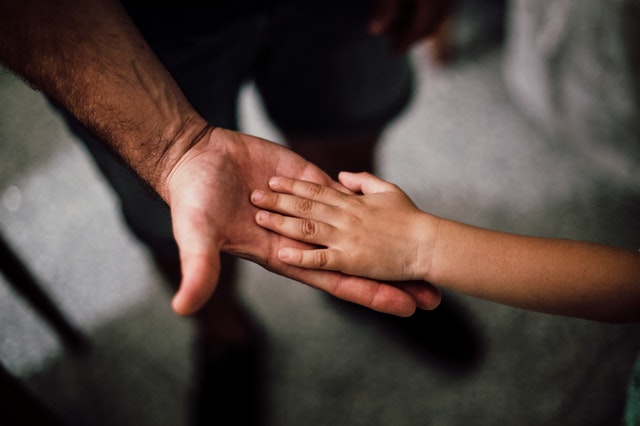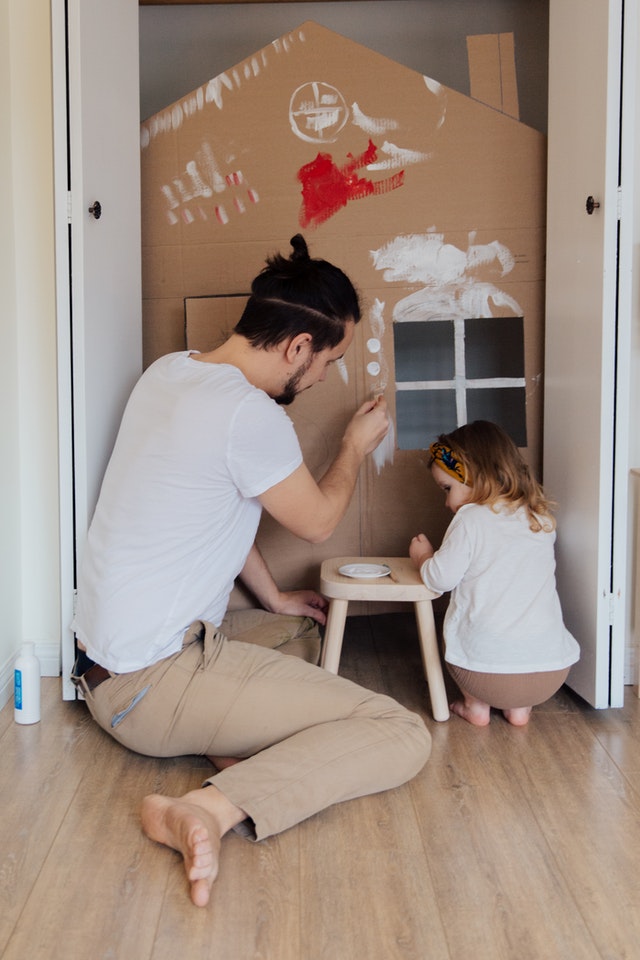Loss is, unfortunately, something that we all have to deal with at some point. Even more tragically, at the moment, all over the world, many people are dealing with a new kind of loss. People that we love are dying, and yet because of local lockdowns and restrictions on contact, we’re unable to comfort each other as we would like. Some people have even found themselves unable to attend funerals, or spend time with friends and family. It’s one of the hardest things about this pandemic; we’re unable to see people, or have physical contact when we need it the most.
As adults, however awful our grief is (and let’s face it, loss never gets any easier to bear), at least we have some idea of what to expect. We understand that our lives will be different, and while we might never know what happens when we die, we have our own belief systems to take comfort from, and an understanding that we won’t see our loved one again in life.
For children, it can be a much more confusing time. Children feel loss greatly, even the loss of a beloved pet can cause them upset and confusion, and certainly the loss of a loved family member or friend is going to have a profound effect.
If your child is struggling with loss, especially at this turbulent time, you might be in for a rough ride.
Why You Need to Help
As parents, we don’t just teach our children. We guide them, we set an example, not just in how we behave or speak, but also in how we communicate, and even how we feel. They learn how to respond to situations by watching you and your reactions. When you cry, you permit them to do so. When you are angry, they know that it’s ok if they are.
Grief is confusing for us all, whether it’s the first time you’ve experienced it or the hundredth, and it’s even more confusing for a child who might not understand or even be able to comprehend that life one day ends.
It’s normal for them to experience behavioral changes as they try to process their emotions, and more than anything, they need you to simply be there for them, for comfort and guidance, but also stability in their changing world. They need to know that you will still be there, even if they act out or get angry, and they need to see that you are grieving too.
Trust Your Instincts
When it comes to helping a child cope with grief, there is no playbook. Like adults, all children are different. They will respond in different ways, and they’ll need different things from their parents.
What you tell them, how much detail you go into, and what you should expect from them will to an extent, depend on their age and levels of maturity. But, it will also depend on their previous experiences, and them as a person.
Fortunately, you’ve got a head start here as the person that knows their child better than anyone in the world. Let your knowledge of your child, as well as your instincts, guide you when it comes to deciding what to say, or not say, and what to involve them in going forward. Remember, there’s no right or wrong here, it’s just about what is right for your family.
Use Simple Language
It’s hard to talk about death with other adults, never mind children. We have a habit of reaching for nicer language. We say “passed away” instead of died. We talk about people going to sleep or resting in peace. Adults know what we mean, children, however, might not.
Tell a young child that someone they love has passed away, and they might wonder what you mean. They might spend time expecting them to come back, confused about what is going on and embarrassed to ask.
Use simple language. Tell them that someone has died and that they won’t see them again. Explain that everyone dies eventually, instead of trying to gloss over the facts.
Listen
It’s common for children to be very quiet as they process new information, especially when it is distressing, and you shouldn’t try to force them to talk if they aren’t ready.
But, when they do talk, you should listen. Even when they are raging and shouting, listen to what they are trying to say. If they’ve got questions, answer them. If they want to know how you feel, tell them. But, if they just want to talk, your job is to make sure they are heard.
If they struggle to talk about how they feel, consider trying to open communication in other ways. Spend time on creative hobbies, go for walks together or try a sport, sing and dance at home, watch movies together. Find outlets that aren’t necessarily sit down chats.
Offer Comfort When It’s Needed
Your child might change. Children who aren’t usually particularly affectionate might suddenly want lots of cuddles and affection. They might seem younger, and they may get upset when you leave them. Give them all of the comfort that they need, even if it’s a change from the norm.
Try to Find Words for Your Own Emotions
It can be hard to express how we’re feeling. You might be upset, confused, angry, a combination of many emotions at the same time. It can be hard to find the words to talk about our own grief.
But your child needs you to. They need to understand that they aren’t alone and that their feelings aren’t wrong. So, let them see how you are feeling. Don’t force yourself to be strong and try to give your emotions words that they can associate with.
Be As Honest As You Can
Your child will probably have questions. You won’t be prepared for them, and you may not know the answers to all of them. But you should try your best. Do research together if you need to, or be honest and admit that you don’t know. Whatever you do, don’t lie to them.
Talk About What Happens Next
Life is different after a death. Their daily routines might be different if it’s someone that they saw a lot. Holidays might be celebrated differently. In the immediate future, there might be a funeral or other ritual to prepare for.
Talk about all of these steps together. Do research online, look at different rituals, show them a bronze grave marker and other commemorative items and help them to understand how important it is to remember our loved ones after they have gone.
Involve Them
How much you involve them will depend on how old they are, how much they understand and how much they want to be involved. It might be giving them a specific job, or you could just ask them to help pick their outfit for the funeral. Involving them, even in a small way, can help to give them purpose.
Expect the Questions to Keep Coming
You might think that things will go back to normal after the funeral. There might come a time when your child seems happy, and life seems ok. But, don’t be surprised if the questions, the sadness and the grief come back at an unexpected time.
Remember Together
Your child’s first response might be to try and ignore their feelings; they might even try to forget the person that they’ve lost so that they don’t feel pain.
This can be a mistake, but it’s something that many adults are guilty of too. Permit them to remember by doing it together. Talk about the person that you have lost, share memories and look at photos. Try to laugh when you can, and let them know that this is ok too.







I wish to share my testimonies with the general public,This is a very joyful day of my life because of the help Dr.sikama did in my life, I was married to my husband we were together for a long time and we loved our self’s but when I was unable to give him a child for 1 years he left me and told me he can’t continue anymore then I was now looking f
how i got my marriage back with the help of dr sikama you can reach him on whatsapp +2348130725051 get the best love spell caster right now
There is one more service that would help our kids – https://admission-writer.com/blog/specific-types-of-essays. It is not for free but definitely worth it.
Wie kann ich nicht alle Kredite aushalten, die auf einem großen Grundstück aufgenommen werden? In der Tat ist es am besten, mein Geld in all das zu bekommen und zu investieren. Wenn Sie also https://rocketpayz.com/de/casino-50-euro-bonus/ benötigen, können Sie casino 50 euro bonus ohne einzahlung verwenden und darüber lesen.